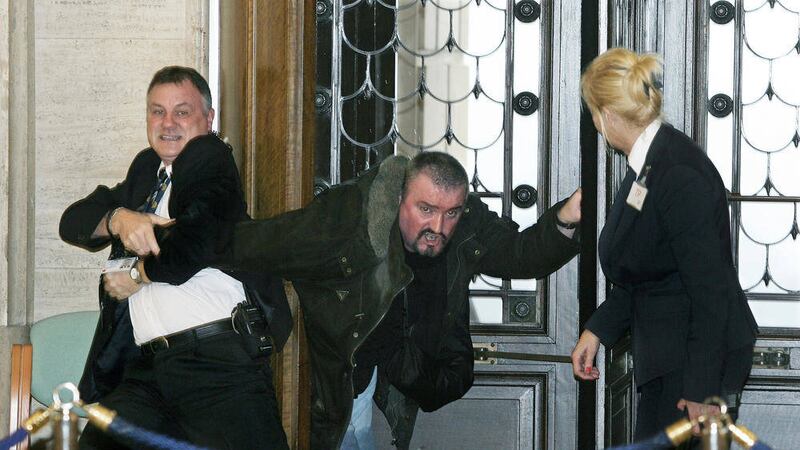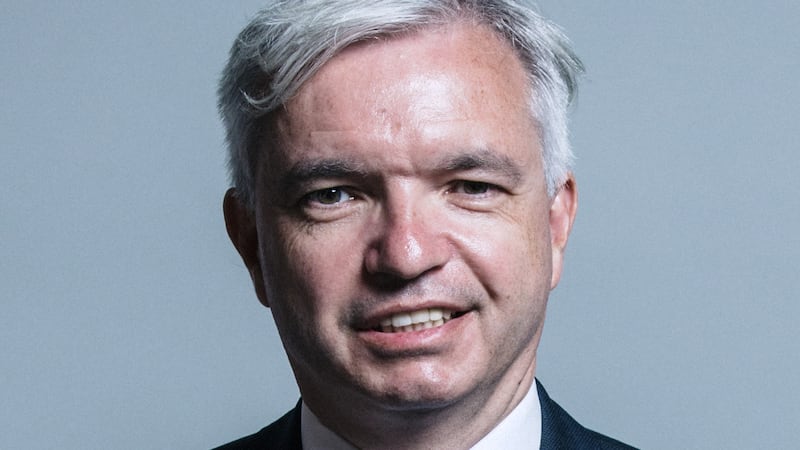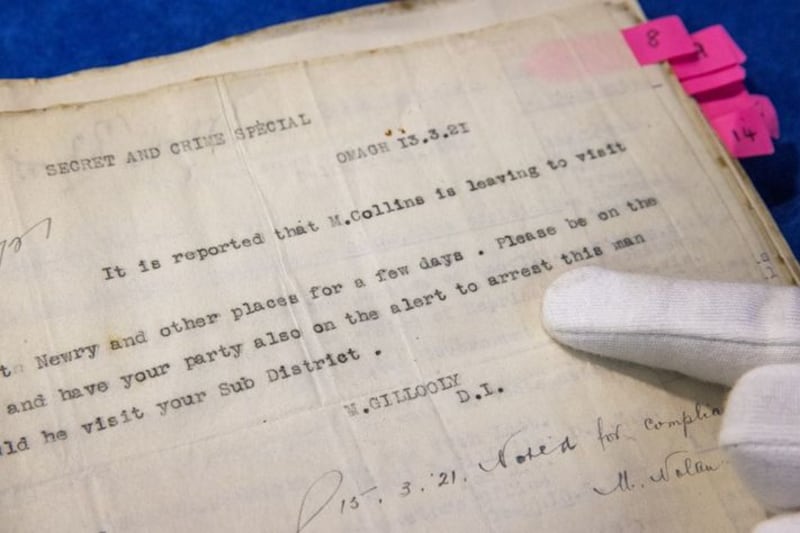MILLTOWN Cemetery killer Michael Stone could be one of the first prisoners to be freed from prison under new guidelines for the early release of inmates.
The 60-year-old loyalist was returned to prison after launching an attack on Stormont in November 2006, armed with explosives a knife and an axe.
He was ordered to serve out the remainder of a 30 year jail term he received in 1989 for six counts of murder, five attempted murders and three charges of conspiracy to murder following a gun and grenade attack on mourners at a republican funeral at Milltown cemetery in west Belfast.
Although he is not eligible for release until the end of 2018, under new guidelines released yesterday by the Department of Justice (DoJ) he may qualify to be released early due to his deteriorating health.
Sources say Stone is confined to his cell with serious mobility problems and along with several other elderly life sentence prisoners will benefit from the changes to compassionate release scheme.
Convicted burglars, car thieves and shoplifters could also get out of jail early under new plans aimed at reducing the number of inmates in Northern Ireland's seriously overcrowded prison system.
The conditional early release scheme will start next month, with criminals deemed to be at low risk of re-offending released after serving half their court ordered sentence.
Around 50 prisoners a year are expected to be eligible under the new plans freeing up space in the prison system.
A spokesman for the Department of Justice said: "The Conditional Early Release (CER) scheme is based on the premise that we will only facilitate the conditional early release of those offenders whose release will not damage public confidence in the criminal justice system and who are assessed as presenting a low likelihood of re-offending and whose early release will aid their rehabilitation and resettlement back into the community."
Victims will also be informed and those prisoners released early will be subject to a licence curfew and recall if they breach their licence conditions.
DUP MLA Edwin Poots, who sits on the Justice scrutiny committee at Stormont, said he had reservations about the proposals.
"I know that the prisons are bulging at the seams, but that is no reason to reduce the deterrent against crime.
"We need to be a country that is very determined that crime does not pay. If you are seen to be soft on crime then that encourages more crime."
Fellow Justice committee member SDLP MLA Patsy McGlone, said: "This will have to be handled very carefully because one person's low risk crime is another person's high risk victim.
"I would also ask, is this a result of the cuts and the pressures on the prisons as a result of the cuts?, he added
While the early release scheme will apply to low risk prisoners, the new guidelines for compassionate release will apply to life sentence prisoners and people convicted of sex offences.
The DoJ spokesman said: "Such releases will only be considered in exceptional circumstances, ie where a prisoner is nearing death or where his or her health has deteriorated to such an extent that he or she requires a level of round-the-clock intensive care that is impossible to deliver in a prison environment."








